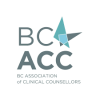Lets raise awareness on Eating Disorders..
Alice stares into her plate, mashed potatoes, mushroom gravy, a veggie burger with sautéed onions. A delightful meal carefully prepared by her mother who sits beside her at the kitchen table. They have been sitting there for one hour and forty minutes. Alice has made mountains and streams in the mashed potatoes, a happy face in the gravy, but no food has passed her lips. “Please, can’t you just try one mouthful?” begs her mother. Alice raises her face and her eyes fill with tears. “I’m sorry, I just can’t. Can I go now?
Mike is a distinguished elder of sixty-five years. He is a very thin man, scraggy hair, his clothes hang from his frame, his skin is loose and pale. Mike’s voice is a mere whisper when he tells me that he overeats. He wants help with reducing his appetite. When I question him for a 24-hour recall of food eaten, he realizes I’m no ordinary therapist. He looks uncomfortable, says he can’t remember and the session ends early. I don’t see him again.
These are just two composite case studies to indicate that Eating Disorders can be across a wide range of people.
Some facts:
A report from Canadian Research on Eating Disorders (2011) prepared by the Ontario Community Outreach Program for Eating Disorders, updated by the National Initiative for Eating Disorders (2017) reveals a disturbing picture of this mental health illness in Canada: In a study conducted in six pediatric care facilities across Canada in 2017, eating disorders were found to have a 60 per cent rise from pre-pandemic levels.
The Canadian Institute for Health Information (2020) reports that hospitalizations for young women with eating disorders increased by nearly 60 per cent since March 2020.
The National Eating Disorder Centre (NEDC) estimates that, at any given time, between 840,000 and 1,750,000 people in Canada have symptoms of eating disorders. The 2019 to 2029 Canadian Eating Disorders Strategy estimates that between 10 to 15 percent of the population will develop this illness. People with these illnesses have the highest mortality rate of any mental illness. Suicide is the second leading cause of death after cardiac arrest for those with anorexia.
For females aged 15 to 24 years old, the mortality rate associated with (anorexia) is 12 times greater than that of ALL other causes of death combined.
Eating disorders are complex mental health conditions that affect millions of individuals worldwide. As a therapist, I’ve had the privilege of working closely with clients battling these illnesses, gaining valuable insights into the deep struggles they face. I have developed some multidisciplinary strategies for guiding them back towards a healthier quality of life. In this blog post, I aim to shed light on the difficulties of eating disorders, exploring the spiritual, psychological, emotional, and physical challenges that individuals endure on their journey to recovery.
The Complexity of Eating Disorders
Eating disorders (ED) encompass a range of conditions, including anorexia nervosa, bulimia nervosa, binge-eating disorder, and others. One of the key challenges in understanding and treating these disorders lies in their complexity. They are not simply about food or weight but are deeply rooted in psychological and emotional factors. Most often we can understand ED’s as an expression of an obsessive-compulsive mind.
For many individuals, eating disorders serve as coping mechanisms for underlying emotional pain, trauma, or distorted self-perceptions. They may use food as a way to regain a sense of control in their lives or as a means of numbing difficult emotions. Untangling these underlying issues requires a comprehensive therapeutic approach that addresses both the surface-level symptoms and the deeper
psychological wounds.
The Psychological Battle
One of the most significant difficulties individuals with eating disorders face is the psychological battle that occurs daily. Thoughts about food, weight, worthlessness, and lack of purpose consume their minds, leading to a constant cycle of guilt, shame, and anxiety. These thoughts can be overwhelming, making it challenging for individuals to focus on other aspects of their lives.
Moreover, eating disorders often coexist with other mental health conditions such as depression, anxiety, Body dysmorphic disorder (BDD), self harming practices or substance abuse. These complex diagnoses further complicate treatment and highlight the importance of therapy.
Emotional Turmoil
Behind the facade of food-related behaviors lie deep emotional turmoil. Many individuals with eating disorders grapple with low self-esteem, perfectionism, and a persistent fear of failure or rejection. These feelings may stem from childhood experiences, societal pressures, or internalized beliefs about external locus of control, beauty and worthiness.
Addressing these emotional wounds is a crucial aspect of therapy for eating disorders. It involves helping individuals develop self-compassion, challenging negative thought patterns, and building resilience to navigate life’s challenges without resorting to destructive coping mechanisms.
Physical Consequences
In addition to the psychological and emotional challenges, eating disorders also take a toll on physical health. Severe calorie restriction, purging behaviors, or binge-eating episodes can lead to a range of health complications, including malnutrition, electrolyte imbalances, gastrointestinal issues, and cardiac problems.
These physical consequences not only endanger the individual’s well-being in the present but can also contribute to physical problems later in life, especially in young women. ED’s can contribute to the cycle of shame and self-blame. Overcoming the focus on physical appearance and embracing a holistic therapy that embraces a holistic view of oneself becomes a central aspect of recovery.
Societal Influences and Stigma
In the seeming chaos of today’s world, and our immediate accessibility to multiple conflicts and disasters in the world through media, many feel they have no locus of control in their lives. So, they turn to the one aspect of their lives which they do have control over-what they eat. In a simplistic way, gaining control over appetite and the somatic responses of hunger and fullness, gives the person a false sense of control over their lives. Their reasoning can be summarized as, “If I can control my eating habits then I can control all other factors in my life.” This is, of course, unrealistic, but it is a traumatic response of attempting to self soothe an unrooted and disoriented psyche.
This disconnection with the body is amplified by long hours of distracted experiences on techno interactive screens. The psyche no longer can differentiate between what is ‘real’ and what is “unreal”. This creates a natural state of anxiety and the individual’s life slips away into oblivion-without meaning, purpose or fulfillment. Like any addiction, consumption of the drug of choice does not satisfy for long.
It’s crucial to acknowledge the role of societal influences and stigma in perpetuating eating disorders. The glorification of unrealistic beauty standards in media, advertising, and social media platforms can exacerbate feelings of inadequacy and drive individuals toward harmful behaviors in pursuit of an unattainable ideal.
Furthermore, the stigma surrounding mental health often prevents individuals from seeking help or disclosing their struggles openly. Breaking down these barriers requires ongoing education, advocacy, and compassionate support for those affected by eating disorders.
The Journey to Recovery
Recovery from an eating disorder is a challenging and often nonlinear journey. It requires a collaborative effort involving the individual, their loved ones, and a multi-disciplinary team of healthcare professionals, including therapists, nutritionists, and medical providers. Key components of successful treatment may include:
Therapeutic Interventions: Each person will have different therapies that will help correct their inner imbalances. Certainly, addressing questions of managing techno exposure, belonging, efficacy within one’s life, personal meaning, identifying somatic responses and recruiting a reconnection with their bodies in a positive way, self awareness and self acceptance are some common successful approaches.
Nutritional Support: Working with a registered dietitian to establish healthy eating patterns and address nutritional deficiencies. Although most ED’s are very knowledgeable about Kcal content of food, they may filter out the consequences of long-term poor eating habits.
Medical Monitoring: Regular medical check-ups to monitor weight, physical health and address any complications arising from the eating disorder.
Family Involvement: Engaging family members in the treatment process to provide support and promote a healing environment.
Peer Support: Connecting individuals with support groups or peer networks where they can share experiences and receive encouragement from others who understand their journey.
Conclusion
In conclusion, the difficulties of eating disorders extend far beyond the surface-level symptoms of the medicalized model of disordered eating. They encompass a complex interplay of psychological, emotional, physical, and societal factors that require a comprehensive and compassionate approach to treatment.
As therapists, our role is not only to support individuals in overcoming their eating disorders but also to advocate for greater awareness, understanding, and acceptance within society. By fostering a culture of empathy and inclusivity, we can create a more supportive environment for those on the path to recovery from eating disorders.
Julia Allen, RCC
We are here to help, click here to reach out to Julia for a free consultation.
Resources:
www.ocoped.ca
https://www.ctvnews.ca/health/with-eating-disorders-on-the-rise-in-canada-experts-break-down- common-myths-1.6175406
https://edfc.ca/wp-content/uploads/2019/11/Canadian-Eating-Disorders-Strategy-Nov-2019-English.pdf file:///C:/Users/Admin/Downloads/uploaded_Canadian20Research20on20Eating20Disorders20- 20Formatted%20(2).pdf
www.nied.ca








